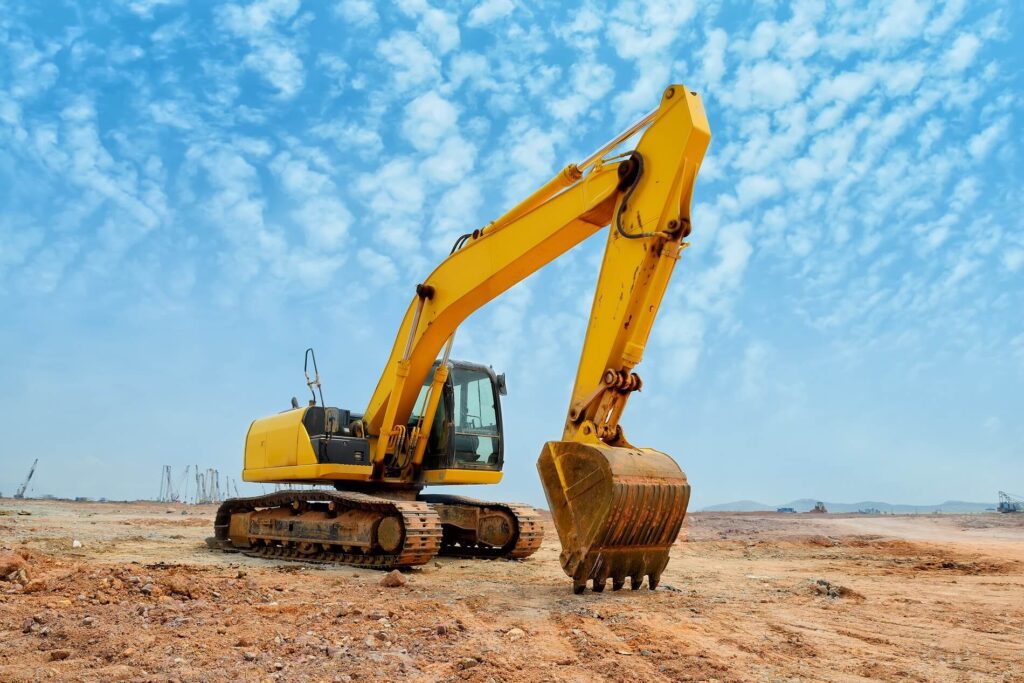Boom Lift Rental in Tuscaloosa AL: Locate Budget-friendly Alternatives for Your Tasks
Boom Lift Rental in Tuscaloosa AL: Locate Budget-friendly Alternatives for Your Tasks
Blog Article
Discovering the Financial Advantages of Leasing Construction Equipment Compared to Possessing It Long-Term
The decision in between renting and owning building and construction devices is critical for financial monitoring in the market. Renting out offers immediate cost financial savings and functional flexibility, permitting business to designate resources more successfully. Comprehending these nuances is essential, specifically when thinking about exactly how they align with certain job demands and monetary strategies.

Cost Contrast: Renting Out Vs. Having
When assessing the monetary ramifications of possessing versus leasing building equipment, a thorough price contrast is necessary for making notified choices. The selection between owning and renting out can substantially affect a business's profits, and recognizing the connected prices is vital.
Renting out building devices typically includes reduced upfront expenses, permitting businesses to assign resources to various other operational needs. Rental expenses can accumulate over time, potentially exceeding the expenditure of possession if equipment is needed for an extended period.
On the other hand, owning building devices needs a significant initial investment, along with ongoing costs such as insurance policy, funding, and depreciation. While ownership can cause long-lasting financial savings, it additionally binds resources and might not supply the exact same degree of versatility as renting. Furthermore, having devices requires a commitment to its utilization, which might not constantly line up with job needs.
Inevitably, the choice to possess or rent out must be based on an extensive analysis of specific project demands, monetary capacity, and long-term critical objectives.

Upkeep Expenditures and Duties
The option between owning and renting out building and construction tools not just includes financial considerations but additionally encompasses ongoing upkeep expenditures and obligations. Having equipment calls for a substantial dedication to its upkeep, which includes regular assessments, repair services, and potential upgrades. These responsibilities can promptly collect, causing unexpected prices that can strain a budget plan.
In contrast, when renting out tools, maintenance is typically the duty of the rental business. This arrangement enables specialists to avoid the financial worry related to wear and tear, along with the logistical difficulties of organizing repair services. Rental agreements frequently include arrangements for maintenance, suggesting that specialists can concentrate on completing tasks instead of fretting about tools problem.
Furthermore, the varied variety of tools available for lease enables business to pick the most recent versions with sophisticated technology, which can improve performance and productivity - scissor lift rental in Tuscaloosa Al. By choosing for services, companies can prevent the lasting liability of devices devaluation and the connected upkeep frustrations. Ultimately, assessing upkeep expenditures and obligations is vital for making an informed decision concerning whether to rent or have construction equipment, considerably influencing total task costs and functional performance

Depreciation Influence On Ownership

A substantial aspect to think about in the choice to possess building and construction equipment is the impact of depreciation on general ownership expenses. Devaluation represents the decline in value of the equipment gradually, affected by aspects such as use, damage, and advancements in innovation. As equipment ages, its market price lessens, which can significantly affect the owner's financial position when it comes time to sell or trade the equipment.
For construction companies, this devaluation can equate to substantial losses if the tools is not used to its max potential or if it lapses. Owners have to account for depreciation in their economic forecasts, which can lead to greater overall prices compared to renting out. Furthermore, the tax effects of depreciation can be complex; while it might supply some tax advantages, these are often countered by the reality of lowered resale go to this website value.
Inevitably, the concern of devaluation emphasizes the relevance of recognizing the long-lasting economic commitment associated with having building and construction equipment. Firms must very carefully evaluate exactly how often they will make use of the equipment and the prospective economic impact of devaluation to make an enlightened decision regarding possession versus renting.
Monetary Adaptability of Renting Out
Renting building devices offers significant monetary flexibility, permitting business to designate resources much more effectively. This versatility is particularly essential in a sector characterized by changing task needs and differing work. By opting to rent, companies can prevent the significant resources expense needed for purchasing equipment, maintaining money flow for various other operational requirements.
Additionally, leasing devices allows business to tailor their devices choices to particular project requirements without the long-term commitment related website link to ownership. This means that businesses can easily scale their tools supply up or down based upon present and expected project demands. Subsequently, this adaptability minimizes the danger of over-investment in machinery that may come to be underutilized or out-of-date gradually.
One more financial benefit of renting out is the capacity for tax advantages. Rental settlements are commonly thought about operating costs, permitting prompt tax obligation deductions, unlike devaluation on owned equipment, which is spread out over a number of years. scissor lift rental in Tuscaloosa Al. This immediate expenditure acknowledgment can even more boost a business's cash placement
Long-Term Job Considerations
When examining the lasting needs of a building organization, the decision between possessing and renting out tools becomes much more complicated. For tasks with extensive timelines, purchasing equipment may appear useful due to the possibility for reduced total expenses.
The building industry is evolving swiftly, with brand-new devices offering enhanced performance and safety and security features. This versatility is especially useful for businesses that handle varied projects calling for various types of tools.
Moreover, financial stability plays an important role. Having devices typically requires significant funding investment and devaluation worries, while renting allows for even more predictable budgeting and cash circulation. Ultimately, the option between having and renting must be aligned with the calculated purposes of the building business, thinking about both existing and expected job needs.
Final Thought
In final thought, renting building and construction tools provides considerable economic advantages over long-term possession. Inevitably, the decision to rent instead than very own aligns with the vibrant nature of building and construction tasks, allowing for adaptability and access to the newest equipment without the financial burdens associated with ownership.
As tools ages, its market worth lessens, which can recommended you read considerably affect the owner's economic setting when it comes time to trade the devices or sell.
Renting construction tools uses considerable monetary flexibility, allowing firms to allot resources much more successfully.In addition, leasing equipment makes it possible for firms to tailor their equipment selections to certain job requirements without the lasting dedication associated with possession.In final thought, renting out building and construction devices provides significant economic advantages over long-term possession. Eventually, the choice to lease rather than very own aligns with the dynamic nature of construction tasks, enabling for versatility and accessibility to the most current equipment without the economic concerns linked with ownership.
Report this page